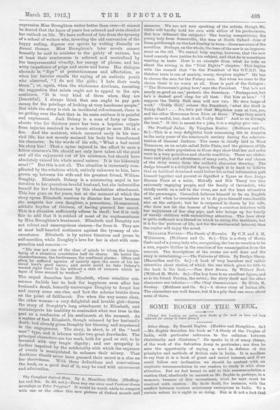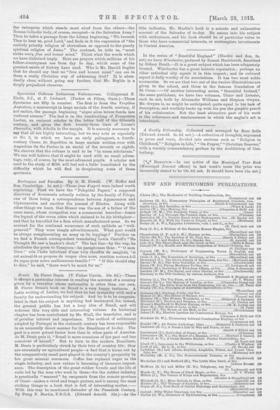SOME BOOKS OF THE WEEK.
[Under This heading we NOUN, such Books of the week as have awl Leen reserved for review in other fome.1 Other Sheer. By Harold Begbio. (Hodder and Stoughton. 68.) —Mr. Begbie describes his book as " A Study of the Peoples of India, with particular reference to the collision between Christianity and Hinduism." He speaks in it of many things, of the work of the Salvation Army in particular ; nor does he miss the opportunity of saying a word in defence of the principles and methods of British rule in India. It is needless to say that it is a book of great and varied interest, and if wo could follow our inclination we should be content with an emphatic recommendation to our readers to study it with close attention. But we feel bound to add to this recommendation a caution that, absolutely in earnest as Mr. Begbie is, perhaps, in a measure, beams° of this earnestness, what he says must be received with caution. He finds fault, for instance, with the conflict between various missionary enterprises in India. To a certain extent he is right in so doing. But is it not a fact that the enterprise which stands most aloof from the others—the Roman Catholics body,of course, excepted—is the Salvation Army P Then he takes a passage from the Litany beginning, " Wo beseech Thee to hear us, good Lord," and finds in it the expression of "the entirely priestly religion of clericalism as opposed to the purely spiritual religion of Jesus." The contrast, he tolls us, "must strike every free and honest mind." Think what the words which we have italicized imply. Here are prayers which millions of his fellow-countrymen use from day to clay, which some of the greatest saints of history have used. Who is Mr. Harold Begbie that he should say that no "free and honest mind" can see in them a really Christian way of addressing God? It is abun- dantly clear, without going any further, that Mr. Begbie is a deeply prejudiced observer.







































 Previous page
Previous page